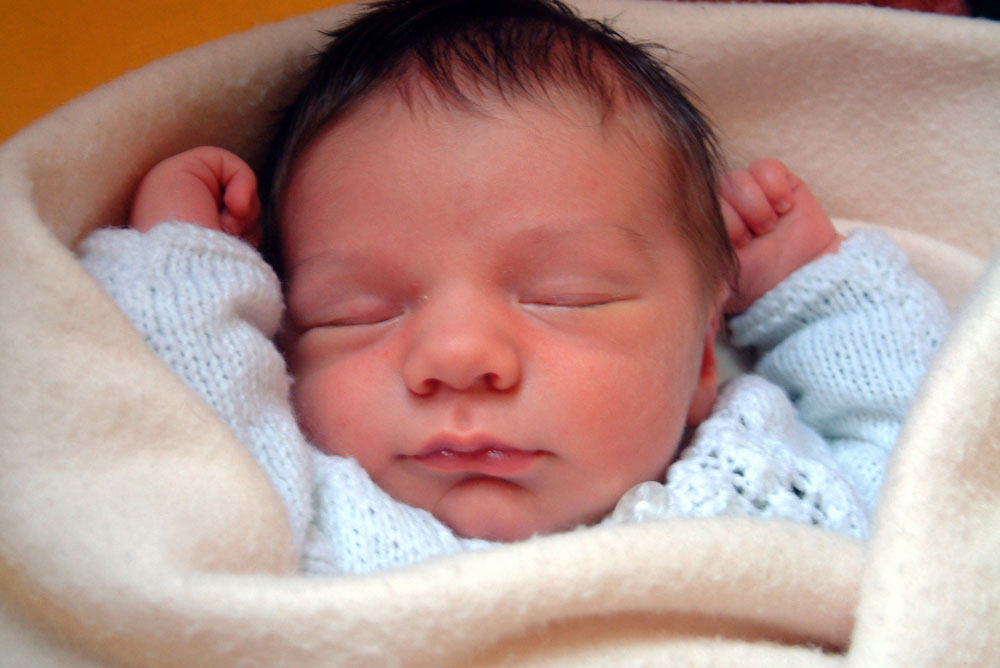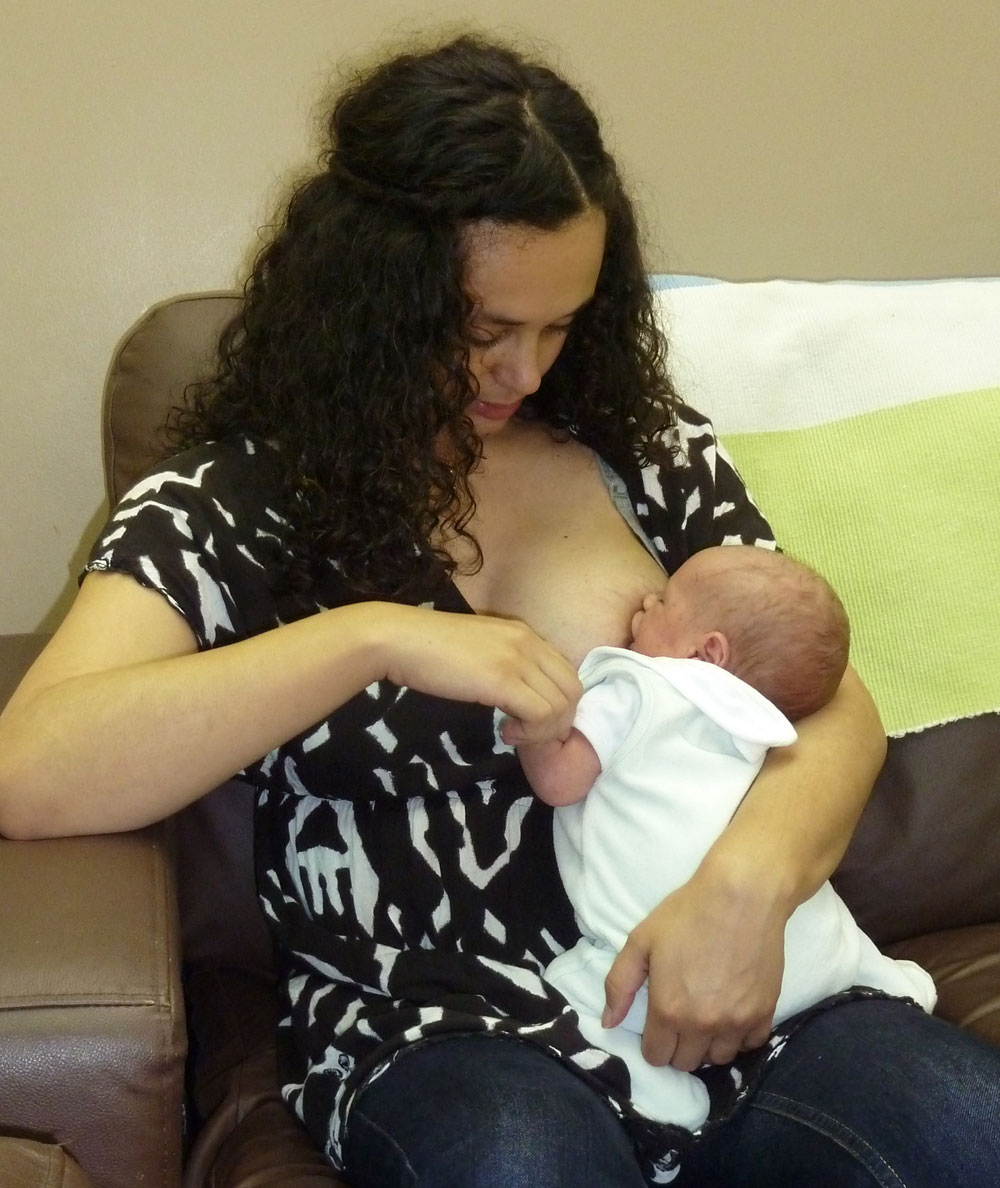For to Dress Like Woman and Suck and Swallow
Newborn babies feed a lot and sleep a lot. But what if a baby seems to sleep all the time or keeps falling asleep as soon as they start breastfeeding? Can a baby be too sleepy? This article looks at newborn sleep, how often babies need breast milk and how to feed a sleepy baby. It is a companion article to How Often Should a Newborn Feed?
How long do newborn babies sleep?
Newborn babies sleep a lot, they may sleep for 18 hours out of every 24—usually for two to three hours at a time1 with perhaps one longer sleep of four to five hours2 . It is common for a baby to be particularly sleepy in the first 24 hours after birth 3.
How often should a newborn feed?
A breastfed baby generally feeds every two to three hours or more around the clock because breast milk is quickly digested and they only have small amounts at a time. For much more information see How Often Should a Newborn Feed? The excerpt below explains:
Breast milk is easily and quickly digested—even as quickly as one hour—and babies have tiny tummies so they need to feed little and often. It is usually recommended that a baby has at least 8-12 feeds in 24 hours i.e. that they breastfeed every two to three hours from the start of one feed to the start of the next and this ties in with a newborn's sleep patterns. Some babies may feed more frequently e.g. every hour at first.

How long should a newborn sleep without feeding?
How long a baby should sleep in one go will usually depend on how much milk they are getting at the breast during a breastfeed. How much milk a baby can get will depend on how much milk a breast can store (breast storage capacity), the latch (the way a baby attaches to the breast) and how many total feeds the baby has during any given 24 hour period. Feeding in clusters with occasional longer periods of sleep is normal especially when there are at least 8-12 feeds over a 24 hour period. If a baby is waking for lots of frequent feeds and feeding actively with plenty of swallows of milk and plenty of wet and dirty nappies and gaining weight, they can usually be left to sleep and feed on demand to their own timetable. If not, then reminding and encouraging a sleepy baby to breastfeed every two to three hours during the day and every four hours at night can be important to avoid them being underfed.

Can babies be too sleepy?
Yes, sometimes babies can be too sleepy and if they are not getting enough milk because they are so sleepy or not feeding very well they can begin to sleep even more and feed even less. A baby who is not feeding frequently or not feeding well may become more and more difficult to rouse. If a baby is very sleepy, they could be at risk of higher than normal weight loss or poor weight gain, higher than normal levels of jaundice and a sleepy baby is a big risk factor for low milk supply because removing milk from the breasts regularly is an important signal to make more milk. If a baby continues to be sleepy and not feed well after a mother's milk comes in, there is a higher risk of the mother's breasts getting engorged or getting mastitis. Mastitis or engorgement can make a mother feel very poorly and reduce a milk supply further.
Encourage a sleepy baby to feed
Encouraging a sleepy baby to have regular breastfeeds and helping them to stay awake long enough to finish a feed will both protect the mother's milk supply and keep baby well fed to protect their health (see below).
Why might a baby be too sleepy?
Reasons for being particularly sleepy might include:
- A difficult birth or birth interventions such as ventouse, forceps or if a mother has received any pain relieving drugs that have affected baby.
- Prematurity, health issues or other medical reasons can make a baby sleepy.
- Breastfeeding problems. If a baby is not getting enough milk they will have less energy and this can quickly make them more sleepy. Sometimes a baby may seem to be breastfeeding but actually they are sleeping with the breast in their mouth and not swallowing anything or very little.
- Jaundice (yellowing of the skin due to a build up of bilirubin) can make a baby sleepy and is more likely in a baby who is not getting enough milk creating a vicious cycle.
- Overstimulation. If a baby is overstimulated by excessive handling by strangers or even family members, bright lights or constant loud noise they might tend to shut down and go to sleep to escape.
- Missed feeding cues. When a baby is swaddled 4, has a pacifier, is too warm or is not in close contact with his mother there is a higher chance of missing feeding cues so that a baby sleeps for longer and feeds less.
- Severe breast engorgement. Severe breast engorgement after the birth may hinder baby getting milk and any unrelieved engorgement will tend to reduce a milk supply. If less milk is available a baby may become sleepier. Conversely, if a baby is already very sleepy and not feeding well there is a higher chance that a mother may experience painful engorgement (swollen breasts full of milk) leading to a vicious cycle of sleepy baby getting less milk, breasts reducing supply due to the engorgement, less milk for baby and so on. See our articles on Engorged Breasts and Engorgement Relief When Milk Won't Flow for more information to deal with engorgement.

How can I wake my sleepy baby to feed?
If your baby is not waking at least 8-12 times in 24 hours he may need reminding when to feed. Ideas to wake and feed a sleepy baby include:
- Look for light sleep and feeding cues. A baby can breastfeed in light sleep and it's easier to latch or wake a baby in light sleep i.e. when his eyes are moving under his closed eyelids (rapid eye movement or REM) and he is starting to move, fidget or fuss in his sleep. Other feeding cues include a baby sucking his fists or fingers, opening his mouth and turning his head from side to side to search for the breast (rooting). It can be helpful to cluster feed in these light sleep/more active periods.
- Hold your baby. Sometimes just picking up and holding your baby in a breastfeeding position will motivate him to begin rooting and latch on (attach to the breast). Holding your baby as much as possible allows you to spot those moments when your baby is in light sleep and try to latch him on.
- Skin-to-skin. Remove your baby's clothes so that he is skin-to-skin or lightly dressed against his mother's chest. Being held in skin-to-skin contact in a tummy down position against a mother's chest is a great position to trigger a baby's feeding reflexes. In this position, babies will often start actively searching for the breast using their hands and mouth even if they are not fully awake. Skin-to-skin contact can therefore encourage more breastfeeds5. The mother's body will keep baby warm, a blanket can be draped over mother and baby as needed. See Why Skin to Skin? for more explanation of how helpful this technique can be used at any time in the early weeks not just after the birth. Remember to remove any scratch mittens.
- Change baby's nappy. Changing a baby's nappy will often rouse them. Some parents combine this with gentle massage of hands and feet.
- Different positions. Try holding your baby in different breastfeeding positions to see if any help him to stay awake. Some babies may be more wakeful in a rugby hold or in an upright position such as a straddle hold compared with a traditional cradle hold. Some may be more active in reclining positions while some may fall into a deep sleep. You can see the different positions to try in Breastfeeding Positions for Newborns.
- Dimming the lights. Bright lights can make a baby want to shut their eyes which encourages sleep, try soft lighting instead.
- Quiet time. Try to create a peaceful atmosphere so baby does not get overstimulated. Passing a baby around family members and constant loud noise can cause some babies to "withdraw" and go to sleep to escape.
- Avoid a dummy. A dummy can encourage a baby to sleep longer. Sucking releases hormones to pacify or calm baby back to sleep and can therefore lead to missed feeding opportunities. See Pacifier, Dummy or Soother, Yes or No?
How do I keep my baby awake during feedings?
Getting baby latched and drinking well at the start of a feed is not always the end of the story. Once the initial let-down subsides, a sleepy baby is quite likely to fall asleep again before he has finished the feed. The following ideas can help your sleepy baby to feed effectively:
Skin-to-skin. Undressing your baby and placing them skin-to-skin on your chest maximises their feeding reflexes and helps stimulate feeding cues.
Position and latch. If your baby is not latched and positioned well it will be difficult for them to get milk (and breastfeeding may hurt!). Check positioning in Breastfeeding Positions for Newborns and see Latching Tips and Why Does Breastfeeding Hurt? Try different positions, upright positions may help your baby stay awake to breastfeed longer.
Breast compressions. Putting gentle pressure on the breast with a free hand while baby suckles can help to keep milk flowing at a faster pace and so keep a baby feeding longer. See What is Breast Compression?
Keep switching sides. As soon as sucking slows on the first breast offer the other breast before baby falls asleep. By switching and repeating you can help to keep baby awake and feeding actively for longer.
Look for active feeding. Watch your baby carefully. Is he actively moving his jaw to suck and can you hear swallowing or see the pause in his suck as he swallows? Watch for the baby who is frequently flutter sucking or comfort nursing but not swallowing anything. If your baby isn't getting enough milk he will probably fall asleep hungry and your milk supply will continue to drop.
Express and top up if needed. If baby is still falling asleep before he has had enough to eat, pumping and topping him up with expressed breast milk will help his energy levels for feeding longer at the next feed. The more breast milk your baby gets the sooner he will be more wakeful and better able to breastfeed effectively. And pumping will protect your supply, only by frequent emptying of the breasts will they know to make more milk.
Get support. Mothers across the world have traditionally taken several weeks to nest with their newborn baby and get breastfeeding established. Finding support with preparing meals or looking after older children can be invaluable. Your sleepy baby will benefit from your focussed attention to get breastfeeding established. And if your otherwise healthy baby continues to be sleepy or is not feeding very well seek the help of a breastfeeding specialist e.g. an IBCLC lactation consultant.
How can I tell if my baby is feeding well?
Our sister article How Often Should a Newborn Feed? explains:
When a baby is feeding actively, even if they look like they are asleep, the baby's jaw will move as they suck and they will swallow regularly e.g. in a pattern of one or two sucks per swallow for 10-15 minutes or more at a time from one or both breasts. The length of time a baby is attached to the breast is not as important as how effectively that baby is feeding. Even if a baby is latched on for an hour, if he isn't feeding actively with plenty of swallows of milk he might not be getting enough milk.
It is important to be aware that just being attached to the breast and making mouth movements alone doesn't guarantee that a baby is drinking well. Although a baby can feed well in their sleep sometimes, other times they can be dreaming about sucking but not swallowing, sometimes for hours at a time. It's helpful to be able to tell the difference between active feeding and flutter sucking and comfort nursing. The way the baby is attached to the breast is important too—see Latching Tips.

Is my baby getting enough milk?
There are lots of ways to determine whether a baby is getting enough breast milk without seeing the volume that has been drunk e.g. looking for active feeding, plenty of dirty nappies and weighing baby regularly. See Is My Baby Getting Enough Milk? and Breastfed Baby Poop for more reading. How Often Should a Newborn Feed? has a guide to the volumes of breast milk a newborn baby might need at each feed.
What if my baby is too sleepy to breastfeed?
If, despite trying the ideas above, your baby is still not waking up to breastfeed, or is latching but not actively getting enough milk, supplements of expressed breast milk will keep them well fed. Topping your baby up every two to three hours will give him more energy to wake up to breastfeed at the next feed. A baby is much more likely to be able to breastfeed effectively if they are gaining weight. Expressing your milk as often as baby ought to be feeding (at least eight times a day) will stimulate the breasts to make more milk and provide the perfect supplement for your baby. If you can't express any breast milk to keep your baby well fed, and if donor milk is not available, your baby may need infant formula until you can get more help with your milk supply.
- Check in with your health professional if your baby is consistently too sleepy to breastfeed to make sure they are not poorly or getting dehydrated.
- Hand expressing or pumping your milk will protect your milk supply and provide a breast milk supplement to keep your baby fed until they can breastfeed. See Hand Expressing, How to Increase Milk Supply When Pumping and How Long Does Breast Milk Last?
- Supplementing a sleepy baby. A sleepy baby can be given small amounts of expressed breast milk (or formula if needed) by teaspoon, syringe or bottle. If your baby is alert and awake but not ready to latch on, another option is to offer a cup feed. Although a bottle teat could introduce a bottle preference or teat confusion it can be helpful for a very sleepy baby who needs larger volumes. Following the ideas in Tips to Bottle Feed your Breastfed Baby and Best Bottle for a Breastfed Baby can help minimise any problems. If a baby is too sleepy to breastfeed properly a supplemental nursing system is probably not going to be helpful at this stage as it relies on a baby sucking actively.
- Check in with a breastfeeding specialist for tailored suggestions to help your baby breastfeed well and maximise your milk supply.
Poor weight gain
A sleepy baby who is not feeding well is at risk of not gaining enough weight or losing weight. This situation can be prevented or quickly reversed by expressing your milk to both protect your milk supply and to keep your baby well fed until you can get more urgent help with breastfeeding. With more milk inside him, your baby will have more energy to stay awake and breastfeed. See Baby Not Gaining Weight, Supplementing an Underweight Baby and How Often Should a Newborn Feed? for much more information.

Summary
Babies do sleep a lot but they will normally wake every two to three hours to feed. If a baby is not waking to breastfeed and is constantly sleeping longer than two to three hours, reminding them to breastfeed can both keep your baby well fed and healthy and also protect your milk supply. Hand expressing or pumping your breast milk to provide a supplement for a sleepy baby may sometimes be needed for a while. There is no advantage to keep weighing a sleepy baby every few days and watching their weight stay the same (or go down) hoping it will pick up eventually. Getting help with breastfeeding as soon as possible will be much more effective in protecting your milk supply and getting breastfeeding on track.
Source: https://breastfeeding.support/breastfeeding-a-sleepy-baby/



0 Response to "For to Dress Like Woman and Suck and Swallow"
Post a Comment